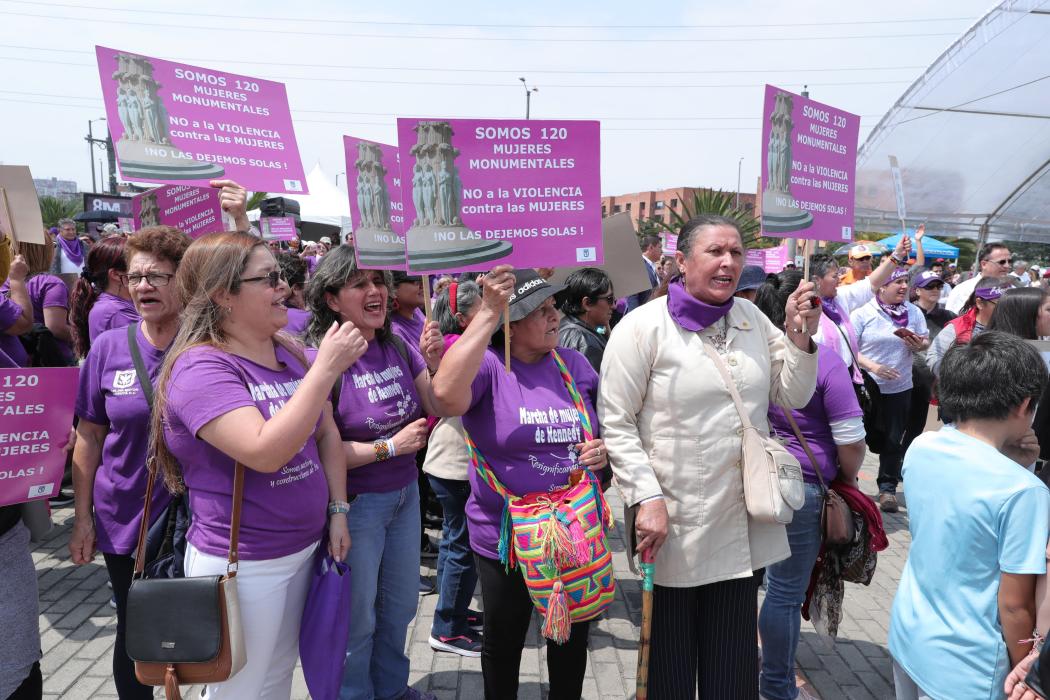Many countries around the world have experienced lockdowns in the last months due to the Covid-19 pandemic. These measures forced over 4 billion people to remain at home as a way to avoid contagion, and even though social isolation was an essential element to mitigate Covid-19, for battered and abused women it sometimes meant being forced to stay at home with their aggressors.
This situation unleashed an unseen wave of domestic violence, especially in Latin America, where the 'macho' culture oppresses women and causes the world’s highest femicide rates. That is why the local government in Bogotá undertook several actions in order to prevent gender violence and to assist victims.
The first strategy adopted by the Mayor's office was to strengthen the available hotlines. Therefore, the Purple support line became the main mechanism where women can find both immediate help and information. Through this 24-hour telephone and WhatsApp channel, callers may access all the services provided by the city in the assistance of any form of violence and obtain information about women’s sexual and reproductive rights.
Currently, the line is operated by a growing group of psychologists, social workers and nurses. Since March, the support line has received 10.059 requests mostly related to emotional violence and 71% of the calls were attended right away. Additionally, Bogotá's Secretary for Women enabled several other local hotlines to provide legal advice to violence victims.
A second approach was the creation of the 'Safe Spaces' program, in which supermarkets, pharmacies and gas stations became places where women could report cases of violence and require assistance. Until now, 573 shops distributed all over Bogotá are part of the program. With this measure, the authorities were able to reach vulnerable communities in areas of the city in which institutions are traditionally weak. This strategy is presently used in various European countries, nevertheless, Bogotá is leading its application in Latin America.
Thirdly, the city created the District’s Committee against Gender-Based Violence as a tool to avoid femicide. This committee meets weekly and it is composed by the Secretaries for Women and Security, the National Police and the General Attorney's Office. The committee analyses the data obtained from all the mechanism against gender violence and points out particular cases in which there is a high risk of femicide. Once the cases are identified, each institution adopts a course of action to monitor the condition of the woman and to protect her security.
Aside from the mechanisms already described, Bogotá´s Women´s Secretariat has assisted 8.112 women of vulnerable communities through 6 additional programs. To sum up, these efforts make clear that women rights are a priority for the government of Mayor Claudia López, the first woman ever elected to this office. In this sense, she stated:
‘’Bogotá's main pandemic is not based on a virus but in violence against women. Therefore, we must enable a new social contract that provides them with opportunities, welfare and the capacity to live without fear’’.





